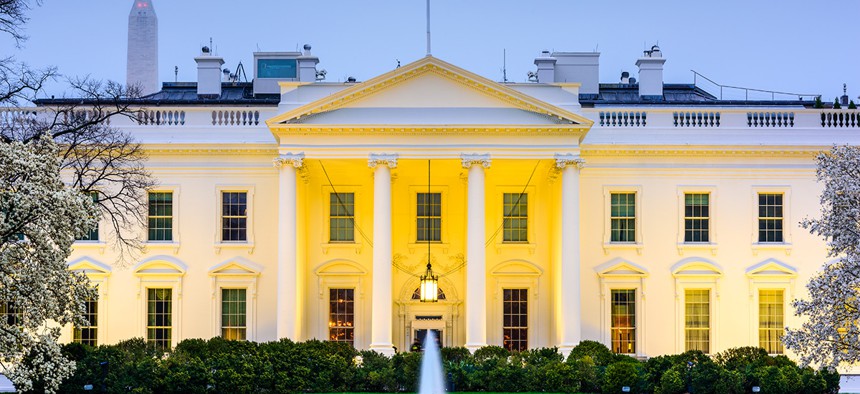Will Top Cyber Talent Join the Trump Team? Jury’s Out

Sean Pavone/Shutterstock.com
Some experts say patriotism will trump anxiety about the outsider candidate. Others are less sure.
Will cybersecurity experts who shunned President-elect Donald Trump’s campaign sign on to secure government and private sector networks during the Trump presidency? The answer’s far from clear.
Some former officials and cyber experts sounded an optimistic tone Wednesday, saying duty to country would outweigh partisan divisions or hostility to Trump’s particularly divisive style in technology and national security sectors.
Others were less sanguine.
» Get the best federal technology news and ideas delivered right to your inbox. Sign up here.
“Given the overall shortage of experts in the cybersecurity workforce and the pay available in the private sector, it is always going to be hard filling top administration jobs with qualified candidates,” said Ian Wallace, co-director of the New America think tank’s Cybersecurity Initiative.
“Add to that the fact that some qualified candidates may not want to serve in a Trump administration, and we can expect that it will take a while to fill some of the government’s top cybersecurity jobs," Wallace added.
Trump’s campaign received little support from former national security leaders and tech executives. In August, 50 former Republican national security officials signed a letter opposing the brash real estate mogul’s candidacy.
Whether tech and security leaders will hold onto that opposition now that the once-longshot candidate has been elected the next president of the United States could make the difference between whether government and private sector computer networks are more secure in four years or more vulnerable.
“My sense is that, out of patriotic duty, the transition is going to be staffed up and Donald Trump will be able to pull in some very experienced people on cybersecurity," said Robert Knake, former director for cybersecurity policy at the National Security Council.
“Fewer members of the national security community and the cybersecurity community in Washington were prepared for or expecting a Trump victory or had thought long and hard about would they be able or willing to take a massive pay cut and go into government service,” Knake said. “Those conversations are happening now.”
Tenable Network Security Chairman and Co-Founder Ron Gula, a former National Security Agency official, sounded a similar note.
“I think if the country calls and tells you, 'we want you to come secure the country,' most people are going to say yes,” he said.
Others worried, though, that Trump’s controversial campaign statements, such as advocating waterboarding, could make national security officials wary of the moral hazards of joining his administration.
“Based on his campaign rhetoric, I think there will be a lot of trepidation in the national security community,” said Mark Fallon, a former Homeland Security Department official and director of the consultancy ClubFed. “Those types of inflammatory comments may seem flippant to him … but I think people might think twice about wanting to join that administration.”
The difficulty of staffing the Trump administration is exacerbated in cybersecurity because the pool of experts is comparatively small and private sector jobs pay much more.
Wallace noted the Obama administration had frequent difficulty finding talent for top cyber posts, especially the role of White House cybersecurity coordinator, which took the new administration roughly a year to fill.
Trump released a cybersecurity plan in October that included a full review of U.S. cyber defenses and vulnerabilities, mandatory cybersecurity training for government employees and increased coordination between the Justice Department and federal, state and local law enforcement. The strategy also called for increasing the capacities of U.S. Cyber Command though it included few details.
The document did not explicitly mention some of the cyber debates roiling government such as whether to split the leadership of CYBERCOM from NSA, both of which are currently led by Adm. Michael Rogers, or to increase DHS authority to protect federal networks.
“I expect President-elect Trump will be challenged to find strong IT/cyber talent given that most leaders in the field, aside from Peter Thiel, opposed his election,” said Jim Miller, former deputy undersecretary of defense for policy.
“I do hope that some top cyber talent will step up as a service to the nation at a critical time,” Miller continued. “There is much important work to do, and there is no time to waste.”






